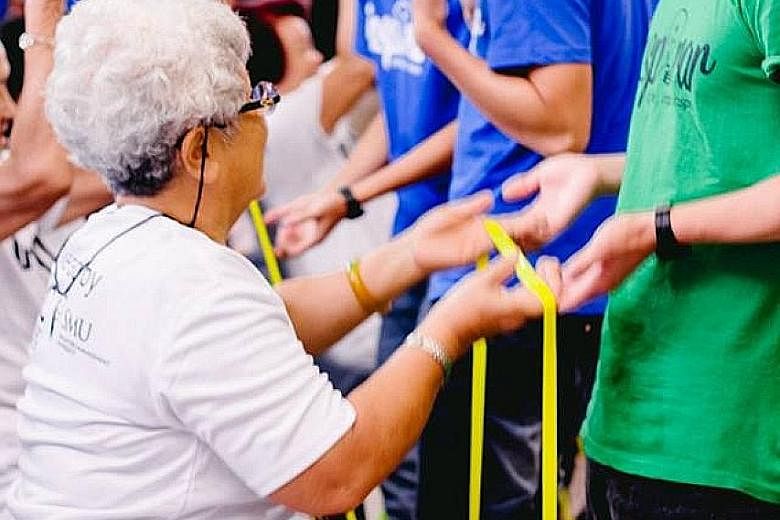They are facing increasing competition from institutions abroad and the rising influence of global rankings. But Singapore's three largest publicly-funded universities have said they are still very much focused on building their Singapore identity and giving back to the country.
Over recent years, universities here have been streaking up various world rankings. Just last month, the National University of Singapore (NUS) and Nanyang Technological University (NTU) were placed No. 1 and No. 2 in the latest Times Higher Education Asia University Rankings. But this has also raised questions on whether these institutions are tweaking their teaching and research models too much in order to fulfil criteria drawn up by foreign publications which rank universities.
This was an issue raised by Acting Minister for Education (Higher Education and Skills) Ong Ye Kung at last month's The Straits Times Education Forum at Singapore Management University (SMU).
While Singapore should be proud of how well its universities have done internationally, he also urged universities not to chase rankings "blindly". This could lead to the country having top-ranked universities which belong to the world but not to Singapore, he said.
NUS provost Tan Eng Chye said despite doing well in these rankings, its strategic plans are not based on them. These tables capture only some aspects of a university's overall achievement, and are highly dependent on criteria used, he pointed out.
Instead the focus is on staying relevant. "We are trying to make sure that we strengthen our identity. Many universities do similar things - they award degrees and do research in similar areas. But how do we stand out?"
One answer is to pursue research that matters to Singapore and the region, a point echoed by SMU provost Lily Kong. "Universities are part of the community they are located in... It is important that... what we do feeds back into society," she said.
For instance, SMU has identified five areas of research that are relevant to Singapore - finance, analytics, innovation and entrepreneurship, ageing and healthcare management as well as urban management and sustainability. The last two were identified earlier this year. Prof Tan also highlighted how the National University Health System, which includes National University Hospital and three faculties - medicine, dentistry and public health - focuses research on illnesses such as gastric cancer and heart diseases, which are more prevalent among Asians.
In recent years, the universities here have also paid more attention to local and regional social science research. For instance, NUS' Centre for Family and Population Research was launched in April last year.
NTU also set up the Ageing Research Institute for Society and Education this year to help find solutions to Singapore's issues with an ageing population. NTU provost Freddy Boey said it also works closely with government agencies to help ensure Singapore's manpower needs in emerging areas such as engineering, healthcare and food science are met.
There is also a big focus on applied research which will have a more direct impact on society. Prof Kong said about 40 per cent of SMU's faculty are doing this, and academics who do more "blue skies" or theoretical work are also encouraged to do applied research - even if it does less for their international reputation.
"Applied work is more difficult to publish internationally because it's about local issues. It's the work that may not get cited as much," she said. "So universities have to be conscious... that we also recognise and reward this work."
At the same time, faculty members here also sit on many national committees and are called upon to be consultants by government agencies and the private sector.
"In some universities around the world... academics write that it is a terrible thing to work with policymakers, you're sleeping with the devil," said Prof Kong, a board member of the Housing Board, a member of the Public Service Commission and a member of the National Arts Council's Arts Advisory Panel. "Here, that tension isn't quite there."
Another example is NUS professor Brenda Yeoh, the dean of its faculty of arts and social sciences, who sits on several panels in the National Heritage Board and is a member of the Urban Redevelopment Authority board.
The universities said they also encourage students to be actively engaged in projects that will benefit society. NTU recently launched a fund to support community projects and student-led social enterprises.
SMU's 2015 graduating class contributed 80 per cent more than the 80 hours of community work that was required. Said Prof Kong: "It's not just about preparing them for employment... but educating these young people to have a sense of responsibility towards the community and society."
The universities said they will evolve with Singapore to meet its changing needs and deal with changes such as technology.
Said Prof Tan: "We cannot stand still because the world moves very fast and if you stay with the status quo, sometimes the change of events may displace you. As a university you have to continue to look ahead, think ahead and move."




